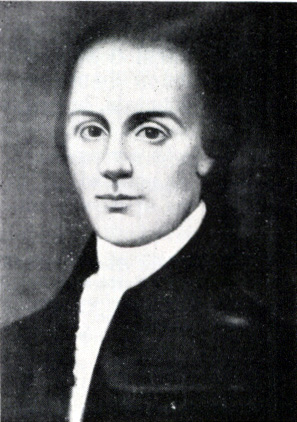- Abner Nash
Infobox Governor
name =Abner Nash
order =2nd
office =Governor of North Carolina
term_start =1780
term_end =1781
lieutenant =
predecessor =Richard Caswell
successor =Thomas Burke
birth_date =August 8 ,1740
birth_place =Prince Edward County, Virginia
death_date =December 5 ,1786
death_place =New York City ,New York
nationality =
party =None
spouse =
relations =
children =
residence =
alma_mater =
occupation =
profession =
religion =
website =
footnotes =Abner Nash (
August 8 ,1740 –5 December 1786 ) was governor of theU.S. state ofNorth Carolina between 1781 and 1782, and represented North Carolina in theContinental Congress from 1782 to 1786.Nash was born in Prince Edward County,
Virginia . He read law and was admitted to the bar in Virginia. He also began his political career there, serving in the House of Burgesses from 1761 to 1765, before moving toNew Bern, North Carolina . He married the widow of former colonial governor Arthur Dobbs. [Authur Dobbs Esquire 1689-1765]Nash was an active supporter of the revolutionary cause. He represented New Bern in the rebel "provincial congress" assembled from 1774, and in 1776 was a member of the committee that drafted the state's new constitution. He became a member of the
North Carolina House of Commons in 1777 (serving as the first Speaker of that house) and the State Senate in 1779.He was elected Governor by the legislature in 1781. During his brief tenure as governor, North Carolina saw some of its worst conflicts as a battleground in the
American Revolutionary War . Unlike his brother Francis, his temper and poor health weren't suited to the needs of war. This brought him into difficulty with the legislature. The assembly appointedRichard Caswell as commander-in-chief of the militia, even though the constitution assigned this responsibility to the governor. Then in December of 1781 they named a "Council Extraordinary" that further encroached on his office. He resigned and went home in the spring of 1782. Thomas Burke was named to replace him.Later in 1782, North Carolina eased political tensions by sending Nash as a delegate to the
Continental Congress . He would serve there the rest of his life, as he died at a session inNew York City . Abner was originally buried in St. Paul's Churchyard in Manhattan, but his body was later returned for burial in a private, family plot inCraven County, North Carolina .His son,
Frederick Nash , was also a lawyer and political leader. He would serve as Chief Justice of theNorth Carolina Supreme Court .References
External links
* [http://bioguide.congress.gov/scripts/biodisplay.pl?index=N000007 Biographic sketch at US Congress website]
Wikimedia Foundation. 2010.
